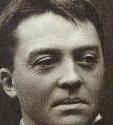Bob M.
Posts: 20
Joined: 9/2/2004
Status: offline

|
2LT Charles C. Mercer 8th AF, 3rd Bomb Div, 388th BG, 45 CBW, Sep 44-end.
He was my father who passed away March 2005.
His B-17 was shot down in Feb 45 and he became a German POW. He received wounds that partially crippled him when he bailed out and landed on the second story of a German house. Shaken from plunging through the roof, he climbed back onto the roof and slipped off the roof, falling into a blind alley. He broke several bones in his legs. As he lay there he was attacked by German towns people with farm implements. He used tell me it was the best shooting of his life. He didn't want to kill anyone because he figured they'd really get pissed off and mass rush him. So he fired close enough to make them think he was trying to hit them and keep them scared (he used to hunt squirrels and muskrats before the war so he was a pretty good shot). (The town was approximately 10 km from the town my mother's parents had emigrated from in 1896 and he would joke that the farmers were in-lawshad been objecting to his marrying my Mom)He also said that he used to get ribbed about the large number of .45cal clips he used to stash in his flying uniform, but he said he used most of them that day. He was taken into German custody and sent to a "bad boy" POW because he refused to make any agreements with or reveal any info to his captors. He tried to escape twice but was quickly recaptured (didn't move too well). Liberated in May 1945, he was shipped to the Pacific where he was a supply officer responsible for stockpiling supplies for the invasion of Japan (and their destruction when the Japanese surrendered). It was there he was infected with an incurable fungal disease. Although he had had a basketball scholarship at Kansas State University when he had enlisted in 1942, the broken bones, meatball German medical treatment, and the fungal infection left him unable to play sports.
He was recalled to active duty in 1950 for the Korean war as first a Ground Forward Air Controller with the South Korean Army and then with the Turkish UN Brigade. Wounded again, he was transferred after healing and became a maintenance officer. After the Korean War, he spent several tours with the Office of Special Investigation doing counter-intelligence, security inspections, and crime investigation.
He finished his career in 1967 as a LTC teaching AFROTC at Oklahoma State University. After retirement, he became a school teacher, then assistant principal at the county high school. After several years in that capacity, he had a flareup of a fungal infestation he had gotten in the South Pacific which caused open ulcers up to 18 inches long to open along his right leg, thigh, and back. This was the first of several hospital stays that lasted from 6 months to a year. In 1971, he was declared 100% permanently disabled from war related injuries by the Veteran's Administration. After several more hospital stays over the next 20 years or so, the doctors amputated his right leg well above the knee. When he became ill with pneumonia in March 2006, he took the time to arrange his will and other legal documents on the desk, got on the bus and checked himself into the hospital. He died less than 24 hours later.
Very Respectfully
Bob Mercer
|
 Printable Version
Printable Version









 New Messages
New Messages No New Messages
No New Messages Hot Topic w/ New Messages
Hot Topic w/ New Messages Hot Topic w/o New Messages
Hot Topic w/o New Messages Locked w/ New Messages
Locked w/ New Messages Locked w/o New Messages
Locked w/o New Messages Post New Thread
Post New Thread